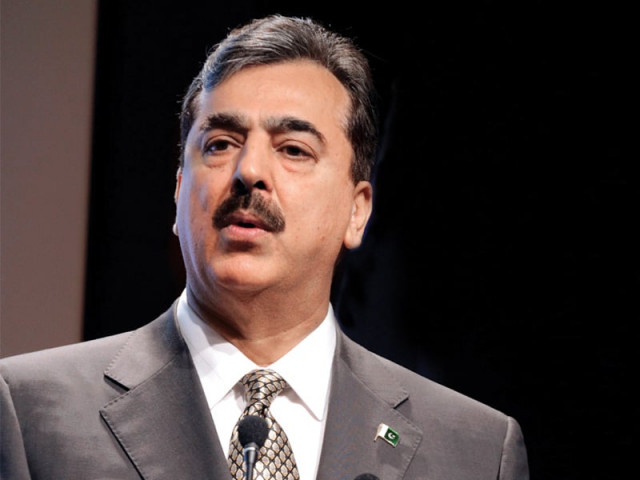PCO judges case: Gilani lets court rule, again
In a contentious court ruling, PM cancels appointment of five PCO judges.

The PM de-notified judges of the high courts of Lahore and Sindh in accordance with the decision of the Supreme Court, said a statement. “The prime minister attaches great importance to independence of the judiciary,” it said.
According to the statement, the premier has cancelled the appointments of Justice Syed Shabbar Raza Rizvi, Justice Syed Hamid Ali Shah, Justice Hasnat Ahmad Khan and Justice Syed Sajjad Hussain Shah as judges of the Lahore High Court (LHC) and Justice Yasmin Abbasey of the Sindh High Court (SHC).
These judges will be entitled to service and pension benefits up to April 20, 2010, when the 18th Constitutional amendment was passed.
A five-judge bench of the Supreme Court, comprising Chief Justice Iftikhar Muhammad Chaudhry, Justice Mian Shakirullah Jan, Justice Tassaduq Hussain Jillani, Justice Sarmad Jalal Osmany and Justice Amir Hani Muslim, had given the government till August 9 to de-notify the judges. On May 18, the court had declared that seven high court judges, who had taken oaths under the PCO, were never validated as judges. The deadline was given after the government assured the court that it will de-notify the dysfunctional judges the moment the chief executive returned to the capital and approved a pending summary sent to him on July 19.
Meanwhile, legal experts and bar representatives have appreciated the federal government’s move but have also termed the Supreme Court’s orders unconstitutional and in violation of its own earlier orders. They point out that in its July 31 judgment, the court had declared that no judge can be removed or made dysfunctional through a notification by the executive and only the Supreme Judicial Council can initiate proceedings against judges under Article 209 of the Constitution.
“The court’s directive is confused. It [the court] has allowed for a way to get rid of any judge that it dislikes,” says former law minister Khalid Ranjha.
“I have no sympathies with PCO judges but only the council can remove judges through a reference. They cannot be removed through a Supreme Court judgment,” said Pakistan Bar Council member Azam Nazeer Tarar. “Through this order, the court has made the executive abide by its judgment, but it has itself ignored legal provisions by penalising judges by this act,” he said.
“The court’s orders are based on personal likes and dislikes and is tantamount to subversion of the Constitution,” says Advocate Ramazan Chaudhry, who was also removed for taking oath under the PCO. “The government, by de-notifying these judges, has proved that it is responsible and respects the Supreme Court.”
“The government has taken a constitutional step while the Supreme Court’s judgment was totally unconstitutional. It [the court] had itself ruled that only the Supreme Judicial Council is the proper forum to decide the fate of judges,” said former PCO judge Muhammad Ahsan Bhoon, who was also the president of Lahore High Court Bar Association (LHCBA).
“The government had no option but to act upon court orders. If the government has any reservations, it can discuss the order in parliament,” Supreme Court Bar Association Secretary Qamar Zaman Qureshi said. (With additional reporting by Rana Tanveer in Lahore)
Published in The Express Tribune, August 8th, 2011.






1724319076-0/Untitled-design-(5)1724319076-0-208x130.webp)












COMMENTS
Comments are moderated and generally will be posted if they are on-topic and not abusive.
For more information, please see our Comments FAQ